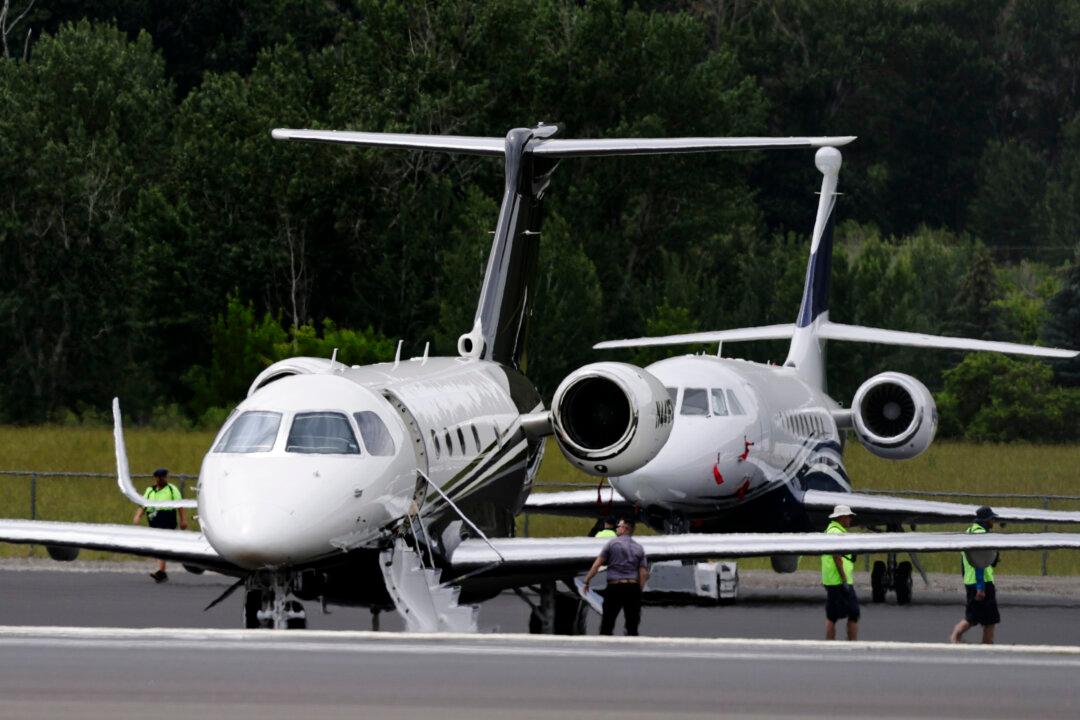The Internal Revenue Service (IRS) said it’s using some of its recent $60 billion funding boost to crack down on improper accounting of personal use of business jets in a bid to squeeze more revenue from wealthier taxpayers.
The IRS said on Feb. 21 that, as part of its ongoing efforts to boost tax compliance in high-income categories, it’s planning to launch dozens of tax audits involving personal use of business aircraft.





